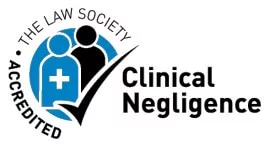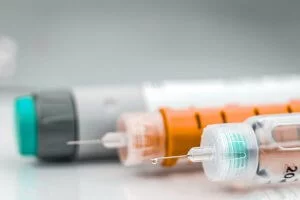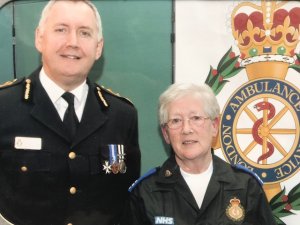Inquests
Inquest Proceedings
At Osbornes Law, our specialist inquest lawyers provide expert representation and support in complex inquest proceedings. Contact us for help and advice.
“Small but very effective and experienced team so every client benefits from the personal touch but also highly skilled litigation know-how. Capability of the team means they can handle all aspects of very complex cases as well as straightforward matters.”
“Osbornes Law is an established firm which handles a breadth of complex and high-value clinical negligence matters.”
“Stephanie Prior is just excellent. So hardworking and committed for clients whose personal circumstances are often extremely difficult. The claims are large and the legal and factual issues are demanding.”
Specialist Inquest Lawyers
At Osbornes Law we have a specialist team of inquest lawyers, who can help you to prepare properly for an inquest, and represent you in the coroner’s court thereafter. Inquest law and procedure is very complex and it is therefore extremely important to ensure that you have the best possible legal representation from the outset.
Our dedicated Inquests Team, formally launched in July 2024, have acted in numerous inquests over many years. They act for families who have required support, guidance and assistance during the inquest process, in often distressing and sensitive circumstances. Our team work closely with a trusted panel of barristers who offer advocacy services and who are always fully briefed in advance by our experienced lawyers.
What is an Inquest?
Inquests are judicial investigations, the aim of which is to assist the Coroner in determining the cause of death when the death was sudden or unexplained. They can also be held into large-scale disasters such as the Grenfell Tower Fire. Inquests are also sometimes held to investigate potential malpractice of doctors and failures of the health care system.
In addition to identifying the medical cause of death, inquests are held to allow the Coroner to answer four questions they are required to answer by statute: namely, who died, when and where they died, and finally how the Deceased came by their death.
Inquests are not criminal or civil trials, and are not designed to establish criminal culpability or to establish blame. Once all of the evidence called by the Coroner has been heard, they will give a Conclusion, which will then appear on the death certificate.
When Will An Inquest Be Held?
An inquest will be held if the cause of death is unknown, if a person may have died a violent or unnatural death, or if the person has died in prison or police custody.
Medical negligence inquests
In a clinical negligence context, inquests may be held in the following situations:
- Maternal deaths – according to the World Health Organisation, every day across the world around 830 women die from causes related to childbirth and pregnancy.
- The vast majority of these deaths occur in developing countries and are entirely preventable. Maternal deaths are due mainly to either bleeding, infection or pre-eclampsia, all conditions which can be effectively managed if recognised and treated in a timely fashion.2
- New-born deaths– hand in hand with care for pregnant and birthing mothers is care for the baby
- Mental health inquest – there may be failings by mental health services that play a role in precipitating unnecessary deaths
- Inquests into misdiagnosis
- Failure to assess – systematic failures by GPs and other medical experts to identify key symptoms.
- Surgical errors
Funding for families at inquests
Currently in the UK legal aid funding for families at inquests in not available. This state of affairs is being challenged by the Commons Justice Committee, on the basis that it is unfair, given that public bodies, such as the NHS, were able to draw on public funds to pay for lawyers. This frequently leads to the situation where families are unrepresented at inquests and for this reason do not get the answers they deserve.
If someone you loved suffered as the result of medical negligence and their death has been referred to the Coroner, then speak to our specialist lawyers. One of our Medical Negligence team at Osbornes Law will make sure that you and your family are properly represented so that you get answers and if relevant, appropriate compensation thereafter.
Osbornes Law representation at inquests
Osbornes Law has acted for many families who have required support, guidance and representation at an inquest following the death of a loved one. Some recent examples of medical negligence inquests in which our dedicated and experienced team have acted include:
- failure to diagnose appendicitis in a 14 year old boy
- failure to provide care to psychiatric inpatients on several occasions at different psychiatric units
- death following cardiac angiogram
- maternal death following c-section
- neonatal deaths
- death following failure to transport patient to hospital
- death following Croydon tram crash
- death following RTA or accident at work
- death following cardiac surgery due to mechanical failure of a heart lung machine
- maternal death following IVF treatment
- failure to carry out brain surgery to an acceptable standard led to death of a 50 year old woman
In all of the above cases, our Medical Negligence team successfully acted for the family in civil claims following the inquest, recovering the compensation they were entitled to.
Why Choose Osbornes Law?
At Osbornes Law we now have a dedicated Inquests team who have many years of experience of representing families at inquests. If you choose to instruct Osbornes, the solicitor dealing with your case will remain the same throughout the life of the case. We also have legal advisors and support teams able to speak various foreign languages including Polish, Romanian, Slovak, Bulgarian, Hungarian and Spanish. They are experienced at assisting with the process and liaising with the coroner’s officers on your behalf.
At any inquest, preparation is key. It is therefore important to have an experienced lawyer acting for you, who can help you to prepare as best as possible for the inquest. Our lawyers pride themselves on their professionalism and their ability to act for clients in the most distressing circumstances with sensitivity and respect.
Our Promise to You
- We will review your potential claim by advising you on the NHS complaints procedure or other alternative procedure if your case does not relate to NHS care and treatment.
- We will not charge a fee for our time in reviewing your case.
- We can assist you with any issues that you may have regarding the complaints procedure or that you encounter in obtaining copies of your medical records.
- We will advise you of the course of action in respect of your case.
Contact us about an Inquest
Call us 020 7485 8811
Email us Send us an email and we’ll get back to you
The Inquest Procedure
What is the purpose of an inquest?
Coroner’s inquests in the UK play a pivotal role in understanding unexpected deaths, providing closure to families, and ensuring that lessons are learned to prevent future deaths. Navigating the complexities of coronial conclusions, disclosure, and managing family expectations requires a delicate balance of legal expertise, empathy, and open communication.
The inquest is an inquiry to ascertain the facts relating to the death of a person, namely who has died and how, when and where they died, together with information needed by the registrar of deaths, so that the death can be registered. The purpose of the inquest is not to determine culpability, blame, responsibility or liability.
Where a person has been charged with causing someone’s death, the inquest is adjourned until the person’s trial is over.
Who conducts inquest proceedings?
Coroners preside over inquest proceedings. Most Coroners are lawyers but some are doctors. Coroners are independent judicial officers, and only the High Court can issue instructions to them. No one else can tell them or direct them as to what they should do, and they follow the laws and regulations that apply to them specifically.
England and Wales have 83 coroner areas, each led by a Senior Coroner supported by Assistant Coroners. The Chief Coroner, established under the Coroners and Justice Act 2009, heads the service.
Coroner’s Officers, typically employed by local police or authorities, support Coroners by investigating, communicating with relatives, and following the Coroner’s directives.
What does a Coroner do?
The role of the coroner is to investigate sudden deaths that have been reported to them, and to hold inquests where appropriate. It is their duty to find out the medical cause of the death if it is not known, and to enquire about the cause of it if it was due to violence or was otherwise unnatural.
Coroners are tasked under Section 5 of the Coroners and Justice Act 2009 with answering specific statutory questions when investigating a death. These questions are who the deceased was, when and where they died, and how they came about their death. Following the inquest the Coroner will give a conclusion (or verdict).
In unusual circumstances, the family of the deceased may arrange for a post mortem to be carried out, or may ask for a second post-mortem if they felt that the findings of the first were inadequate.
What are the possible verdicts (or conclusions of an inquest?
Conclusions (verdicts) can be either short form or narrative conclusions. Short form conclusions relevant to the clinical context can include:
Short Form Conclusions
- Natural Causes: If the death occurred due to natural causes, the coroner can conclude that the deceased passed away from a medical condition without any external factors contributing significantly.
- Accidental Death: This conclusion is drawn when the death was unintentional and resulted from unforeseen events or accidents.
- Suicide: When the evidence indicates that the deceased took their own life, the coroner can conclude suicide. This conclusion requires careful consideration and sensitivity due to its profound impact on the deceased’s family.
- Unlawful Killing: If the death resulted from a criminal act, the coroner can conclude unlawful killing. This finding can lead to criminal investigations and legal proceedings.
- Open Conclusion: In cases where the evidence does not clearly support any of the above conclusions, the coroner may deliver an open conclusion, signifying that the circumstances surrounding the death remain unclear.
Additional possible verdicts of an inquest include:
- Attempted/self-induced abortion.
- Accident/misadventure
- Industrial disease
- Want of attention at birth
- Dependence on drugs/non-dependent abuse of drugs
At the end of the hearing all the evidence the coroner will give the jury a summary of the evidence heard and will direct them as to the verdict they should return. The coroner may also give the jury the option of returning a narrative verdict in which the jury’s factual conclusions can be briefly summarised or he/she may invite the jury to answer factual questions.
What are narrative conclusions?
In some circumstances, and in many cases in which we are instructed to represent families, the coroner may determine that a narrative conclusion is better than a short-form conclusion. A narrative will give the coroner (or jury) the opportunity to state what findings are made and what are not. Or alternatively, an open conclusion can have extra words appended by way of explanation.
Importantly though, coroners are encouraged to keep narrative conclusions short, and are strongly discouraged from including “expressions suggestive of civil liability, in particular ‘neglect’ or ‘carelessness’” (see R (Middleton) v West Somerset Coroner and another [2004]).
Family expectations
Families often have high expectations for inquests, often seeking detailed explanations and thorough investigations, which can often clash with the legal limitations which are placed on coroners by the statutory rules mentioned previously. It is important to be aware that a coroner’s inquest is an inquisitorial process and the scope of the inquest is under the control of the coroner. It is not an adversarial process, and whilst often people who were involved in, or responsible for, the Deceased’s care will give evidence, it is not a trial. The purpose of an inquest is not to establish liability or to impart blame on any given person or organisation.
Coroners and legal representatives must navigate the challenge of managing families’ expectations with empathy, ensuring that they are informed about the progress of the investigation, while respecting legal boundaries. Managing these expectations is an intricate process that requires clear communication and compassion.
What standard of proof is required in inquest proceedings?
The standard required for the coroner to reach a conclusion is the civil standard of proof (i.e. ‘on the balance of probabilites’) as opposed to the more burdensome criminal burden of proof (‘beyond reasonable doubt’).
Interestingly, until very recently if a coroner was to make a finding of suicide or unlawful killing, then they were required to apply the criminal standard of proof. However, this changed following the Supreme Court’s consideration and determination of these issues in the case of R (on the application of Maughan) v. Her Majesty’s Senior Coroner for Oxfordshire [2020] UKSC 46, in which the court held that the civil standard of proof applied to both suicide and unlawful killing. Whilst this arguably creates more certainty and consistency with the requirements for other conclusions, it has not been without its opponents.
On a more practical basis, there are other important considerations which should be borne in mind when preparing for and attending inquests.
When will a death be reported to the Coroner?
There are a number of situations where a death should be reported to the coroner, such as where the deceased was not attended during his last illness by a medical practitioner, where the cause of death is unknown, or a death which appears to have occurred during an operation or before recovery from the effect of an anaesthetic.
Deaths are usually reported to the coroner by the police, by a doctor, or by the local register of deaths. The registrar should not register any deaths that have been reported to the coroner until the coroner finishes his enquiries. This means that there may be a delay before the funeral can take place (please see below).
How do you prove neglect in an inquest?
We are often instructed by families who feel that their loved one has passed away as a result of negligent medical care or negligence whilst they were resident in a care home. Coroners are entitled to return a conclusion with a rider of neglect, however in order to be able to do this, the coroner must be satisfied that the deceased was in a dependent position and that as a matter of law there is evidence of a ‘gross failure’, and that there was a clear connection between the gross failure and the death.
Findings of neglect are often very difficult to achieve at the conclusion of an inquest. It is helpful to consider the court’s definition of ‘neglect’ in the case of R v HM Coroner of North Humberside and Scunthorpe Ex p Jamieson [1995], which perhaps goes some way towards showing the limited scope of this definiteion, and in explaining why such findings are rare in practice:
“Neglect in this context means a gross failure to provide adequate nourishment or liquid, or provide or procure basic medical attention or shelter or warmth for someone in a dependent position – because of youth, age, illness or incarceration – who cannot provide it for himself. Failure to provide medical attention for a dependent person whose physical condition is such as to show that he obviously needs it may amount to neglect…”
Do you have juries at inquests?
Most inquests are held without a jury. However, the coroner will ask for a jury when it is suspected that the death comes into certain categories, such as deaths occurring in prison or police custody, or if the death resulted from an incident at work.
Where the inquest is held with a jury, it is the jury and not the coroner, which makes the final decision.
Do I have to give evidence at an inquest?
It is up to the coroner to decide who to call to give evidence at inquests. The coroner may also control and limit questioning, and may refuse to allow questions aimed at establishing blame. As a result, inquest hearings can be unsatisfactory.
All witnesses that have been called must attend an inquest. Anyone who has a “proper interest” may question a witness at the inquest, or can instruct a lawyer to ask questions. A “properly interested” person includes a parent, spouse or child and anyone acting for the deceased.
Is public funding (formerly legal aid) available for inquests?
Public funding (legal aid) is not generally available to cover representation at the inquest, but the costs of representation may be recoverable if a later civil claim for damages is successful.
Are all inquests made public?
All inquests must be held in public and someone from the Press is usually present in court. It is up to the journalist to decide whether they report the case. However, the coroner will make every effort to treat each inquest sympathetically, and will often not read out personal notes or letters unless it is essential.
In some instances the family may want to publicise an inquest, and it is possible to prepare a press statement to submit to various agencies.
Report of the inquest
When the inquest has been completed, any person who has a “proper interest” may have a copy of the notes on payment of a fee.
How will the funeral be affected by the inquest?
The funeral may be held before the inquest is over as the coroner will normally allow burial or cremation of the body once the examination of the body is finished. However, delay may arise if someone has been charged in connection with the death, for example for murder or manslaughter.
A police investigation if there are criminal proceedings may delay the inquest.
A death certificate will not normally be granted until the inquest is finished. An interim death certificate will be issued instead.
Can I make a claim following the inquest?
Once the inquest has been completed, a civil action usually starts to gather momentum. The usual procedure is that the claim is brought through the executors, either the administrators or the executors of the deceased’s estate.
Therefore, claims can be pursued under:
Law Reform (Miscellaneous Provisions) Act 1934
Under this act a claim can be brought for damages for pain, suffering and loss of amenity of the deceased prior to death. Similarly, any loss of earnings during the period prior to death would also be recoverable and funeral expenses if paid for by the estate. It is necessary for a grant of probate to be taken out.
There could also be a claim for nursing expenses, including the cost of hospital visits and gratuitous care provided.
Fatal Accidents Act 1976
This Act gives an independent right of action to relatives “or dependants” of the deceased.
Dependants
In order to claim under this Act people must first of all show that they were in fact dependent or reliant upon the deceased in some way. Dependency is essentially a matter of fact.
In addition, any Claimant must also show that they come within one of the categories of people set out in the Act. Sections 1(3) and (4) provide:-
(3) In this Act “dependant” means –
(a) The wife or husband (includes the former wife or husband) of the deceased
(aa) The civil partner or former civil partner of the deceased.
(b) Any person who was living in the same household before the date of death, and had
been living with the deceased in the same household for two years before that date, and; was living during the whole of hat period as the husband or wife or civil partner of the deceased.
(c) Any person who is a parent or grandparent of the deceased
(d) Any person who was treated by the deceased as his parent
(e) Any person who is a child or grandchild of the deceased,
(f) Any person (not being a child of the deceased) who, in the case of any marriage to which the deceased was at any time a party, was treated by the deceased as a child of the family in relation to that marriage
(fa) Any person (not being a child of the deceased) who, in the case of any civil partnership to which the deceased was at any time a party, was treated by the deceased as a child of the family in relation to that civil partnership
(g) Any person who is or is the issue of, a brother, sister, uncle or aunt of the deceased.
In addition to the above, the Act also provides for a statutory award for bereavement. This will only be payable to a spouse of the deceased or the parents of the deceased, if the deceased was a child under 18 years of age. The law is still progressing in relation to this. A child cannot claim bereavement damages for the death of their parent under the Fatal Accidents Act.
Another claim that can be made under the 1976 Act is for reasonable funeral expenses. Any dependent who has actually expended funeral expenses can claim them. The Court will award normal, reasonable funeral expenses which would include a headstone and even the cost of embalming but would probably not include an elaborate memorial.
Can you claim through the CICA (Criminal Injuries Compensation Authority)?
If there is not a viable clinical negligence or personal injury claim but a criminal offence has been committed which has led to the death of a person a claim may be considered through the CICA (Criminal Injuries Compensation Authority).
What are the most significant challenges related to inquests?
One of the most significant challenges in coronial inquests revolves around the disclosure of documentation. Despite coroners often setting clear dates for disclosure of material, these dates are often not complied with, particularly when dealing with large hospitals for example. Paragraph 1 of Schedule 5 to the Coroners and Justice Act 2009 gives a coroner the power, by way of a written notice, to compel the production of evidence for the purposes of an investigation however, and is something which can be considered where important disclosure is not forthcoming.
Balancing the need for transparency within the relevant timeframes with the sensitivity of the situation is crucial. Recently, we have noticed that late disclosure has led to significant issues for us and the families we represent. In some instances new information has come to light just days (and in some cases hours) prior to the start of the inquest. This not only leads to problems in preparing for the inquest and advising our clients, but has the potential to prevent them and other interested parties from participating fully and properly in the inquest process. This in turn raises concerns regarding transparency and accountability in such cases.
The timing of disclosure can also impact on the parties at the stage of Pre-Inquest Review hearings. If parties are able to go into these hearings having had full disclosure of all relevant documentation which is available at that stage, then they are then more fully able to prepare for the hearing, and to address the agenda on a more informed basis.
Addressing this issue is critical for ensuring a fair and effective inquest process, as well as upholding the principles of justice and accountability.
Osbornes is a very respected firm in the marketplace.
They handle really complex cases very well
The clinical negligence team are knowledgeable and professional in their approach and demonstrate a high level of skill in litigation work.
Osbornes Law offers experience in obstetric and fatal claims as well as niche cauda equina cases.
Osbornes Law is an established firm which handles a breadth of complex and high-value clinical negligence matters.
“The team is very quick and efficient in responding."
"Obsbornes Law is always client-focused and works tirelessly to obtain the best outcomes for clients."
‘They are ambitious for their clients and expect high standards from all who work with them.’
"Osbornes somehow combine the accessibility of a local firm, with the professional standards of a national or city outfit."
"Osbornes, is described as having ‘superb judgement and a medical knowledge that is second to none."
They are an excellent firm who achieve fantastic outcomes for their clients. They are also very prominent in injuries to those travelling to or from Europe. Multiple languages are spoken by the team.
Stephanie Prior is a first-rate clinical negligence specialist whose industry, great experience and medical background put her in an exceptional class.
This firm is responsive and efficient. Their rapidity in dealing with complications or hiccups is excellent.
Really great clinical negligence practice, staffed by experienced practitioners who know how NHS Trusts work. They also build great rapport with clients.’
Osbornes provides a very intimate and personal client service which is increasingly rare in this sector.
The lawyers in the team are highly experienced and will drive cases very hard on behalf of their clients.
Related InsightsVIEW ALL
- 29.4.2025
Five-Figure Settlement in Fatal Medical Negligence Case
Osbornes Law secures a five-figure compensation following a fatal medical negligence claim Osbornes acted for our client, E, who brought...
Read more - 30.4.2024
Settlement In Neonatal Death Case
Settlement in fatal medical negligence case against King’s College Hospital Nick Leahy, Associate in our Clinical Negligence department, recently...
Read more - 29.4.2024
Settlement After Fatal Accident At a Roundabout
Fatal claim settled for a cyclist struck by a truck Laura Swaine recently settled a fatal accident claim for a...
Read more - 8.4.2024
Epilepsy Negligence Compensation Claim
Nicholas Leahy, an Associate in the Clinical Negligence team at Osbornes Law, has recently settled a long-running fatal medical negligence...
Read more - 13.2.2024
5-figure Payout for Death of Hungarian Lorry Driver
Hungarian lorry driver tragically dies Siobhan McIvor, a Partner and Personal Injury lawyer, has successfully settled a fatal accident compensation...
Read more - 1.8.2023
Bowel Ischaemia Fatality – Client Story
Jodi Newton, a Partner in the Clinical Negligence Department at Osbornes Law, has recently settled a long running fatal medical...
Read more - 14.2.2023
Fatal Accident Case Studies
Settlement for Pedestrian Killed Crossing the Road Laura Swaine, an Associate at Osbornes Law, acted on behalf of a family...
Read more - 3.2.2023
Bereavement Support Payment
What are Bereavement Support Payments? Bereavement Support Payments are a benefit provided by the government to help people cope with...
Read more - 13.1.2023
Delayed diagnosis of appendiceal cancer
The medical negligence team at Osbornes Law has recently settled a case involving a patient who passed away following a...
Read more - 14.7.2022
Insulin overdose in hospitals due to limited staff...
A century ago, insulin was first used to treat a 14-year-old boy dying of type 1 diabetes. A hundred years later,...
Read more - 31.1.2022
Recent fatal medical negligence cases
Osbornes Law specialises in helping families who have suffered a fatality due to inadequate medical care. Our specialist team has...
Read more - 20.9.2021
Osbornes Law Represents Family in Fatal Medical Negligence...
Negligent Hospital Care Leads to Tragic Death Osbornes Law is representing the family of a former NHS employee who suffered...
Read more - 9.7.2021
Legal Support For Bereaved Families
What legal support is available for bereaved families? The loss of a loved one is an extremely distressing time for...
Read more - 8.7.2021
Failure to prescribe anti-coagulant medication proves fatal
Executor of the Estate of DS and another v James Paget University Hospitals NHS Foundation Trust The Clinical Negligence team...
Read more - 18.5.2021
Fatality of child caused by incorrect diagnosis
KRB was born in 2000 and was a patient at Whipp’s Cross Hospital. In the Autumn of 2014 he was feeling...
Read more - 15.2.2021
Death due to fishing accident settled for £125,000
Client drowns following a boat collision Fatal Accident claim following the death of Mr D who drowned as a result...
Read more - 15.10.2020
Fatal Accidents In The Workplace
A new article from the BBC takes a looked at fatal accidents at work. The report states that since 1981, there...
Read more - 13.10.2020
Parental Bereavement Leave & Pay
What is Parental Bereavement Leave and Pay? Parental Bereavement Leave and Pay is something that many parents will not be...
Read more - 5.10.2020
£50,000 secured for family after loss in road accident
Case Background Sam Collard, an Associate in the Osbornes serious injury team, recently settled a fatal accident claim brought on...
Read more - 13.11.2019
Fatal Claim against West London NHS Trust
Claim Against West London NHS Trust Case Overview I recently acted in a fatal medical negligence claim against West London...
Read more - 13.8.2019
Fatal Accident Conviction Highlights Health & Safety
Construction bosses guilty of gross negligence manslaughter Conrad Sidebottom, 46, and Richard Golding, 43, were jailed for their part in causing the...
Read more































